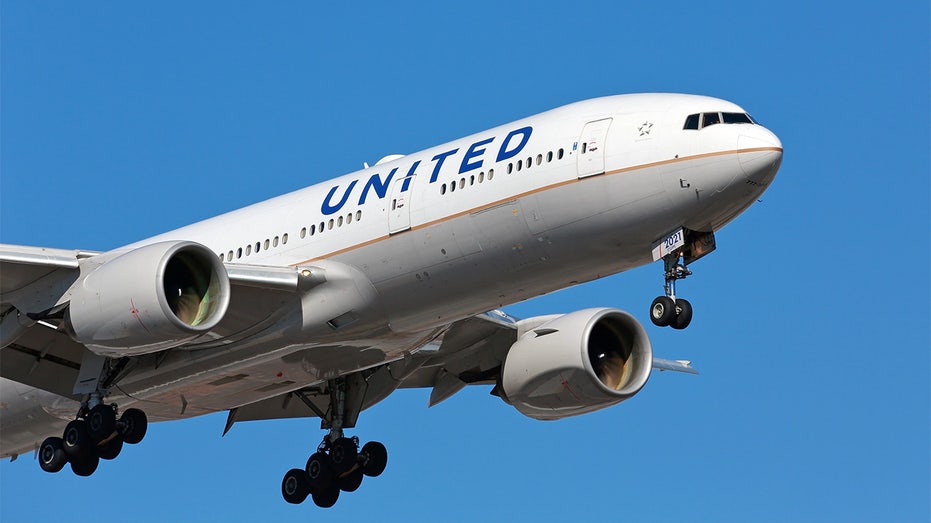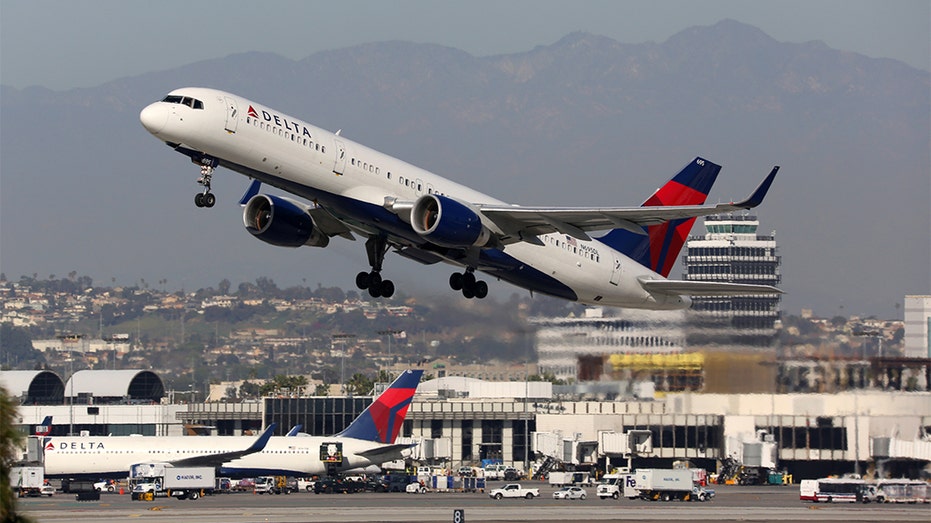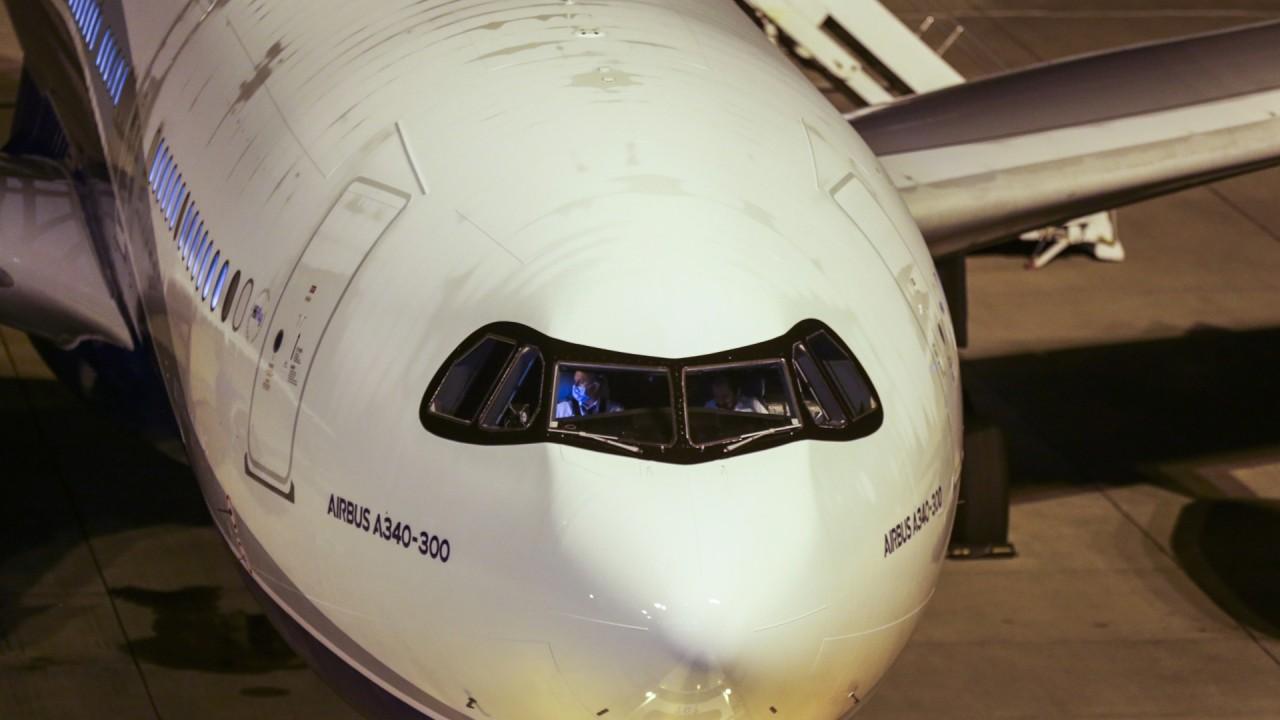Coronavirus forces airlines to consider selling miles for cash
United Airlines, Delta Air Lines may sell miles at a discount to big banks to survive COVID-19
Get all the latest news on coronavirus and more delivered daily to your inbox. Sign up here.
As U.S. airline executives try to come up with ideas to survive the steep revenue cuts caused by the coronavirus pandemic, industry insiders told The Wall Street Journal that major companies such as United Airlines and Delta Air Lines are toying with the idea of selling travel miles to credit card partners for cash.
JPMorgan Chase, which has backed personal and business credit cards for United Airlines, and American Express, which has backed four tiers of the Delta SkyMiles credit card for Delta Air Lines, are said to have discussed a strategy where the two airlines will unload miles earlier than scheduled so the credit partners can purchase them for a discounted rate.
THE BEST SEAT TO AVOID CORONAVIRUS EXPOSURE ON AN AIRPLANE
| Ticker | Security | Last | Change | Change % |
|---|---|---|---|---|
| UAL | UNITED AIRLINES HOLDINGS INC. | 110.05 | -6.88 | -5.88% |
| DAL | DELTA AIR LINES INC. | 67.44 | -3.67 | -5.15% |
| JPM | JPMORGAN CHASE & CO. | 308.03 | -0.76 | -0.25% |
| AXP | AMERICAN EXPRESS CO. | 342.64 | -3.40 | -0.98% |

“If airlines start seriously talking about mileage presales, we’ll know things are particularly dire,” wrote Joseph DeNardi, an airline analyst at the brokerage and investment bank Stifel.
At the beginning of the month, DeNardi estimated that Delta Air Lines could get “a lot more” than the $4 billion American Express paid last year for miles if a deal was struck. He also predicted United Airlines could get roughly $3.2 billion to $3.4 billion from JPMorgan Chase.
DELTA BLOCKS MIDDLE SEATS FOR CORONAVIRUS PREVENTION
Banks regularly buy miles from airlines to reward loyal credit card customers who reach certain spending thresholds. And in times of crisis, airlines have sought support from their card partners to stay afloat.
After the Sept. 11, 2001, terrorist attacks, planes were grounded for several days, and airlines received cash infusions from their respective partners to avoid bankruptcy. Similar circumstances occurred when the 2008 financial crisis hit the U.S. economy and travelers limited the number of flights they boarded.
CORONAVIRUS FORCES UNITED AIRLINES TO CUT CALIFORNIA FLIGHTS TO MATCH DEMAND
The global coronavirus pandemic has cut flights by 70 percent for the month of April, according to The Wall Street Journal. Coupled with social distancing guidelines from the CDC and international travel bans, further reductions may be on the horizon for airlines.
However, if airlines are successful in selling miles to credit partners ahead of schedule, they stand the chance to generate revenue from the fees their partners earn through cardholder usage. In turn, credit partners can renew ties with frequent fliers.

Delta Air Lines, for example, reportedly accounts for about 20 percent of American Express’ total balances worldwide. When the two companies renewed their partnership last year, Delta projected to double its earnings to almost $7 billion annually by 2023.
GET FOX BUSINESS ON THE GO BY CLICKING HERE
Congress designated $50 billion in grants and loans for U.S. airlines from the $2 trillion stimulus package that was passed last month. However, executives at major airlines are seeking support from large banks and credit partners instead of surrendering equity stakes to the U.S. Treasury, according to The Wall Street Journal.
In early March, United Airlines reportedly raised $2 billion from a group of banks and weeks later it secured $500 million from Goldman Sachs for its inventory of commercial airliner engines and other spare parts.
| Ticker | Security | Last | Change | Change % |
|---|---|---|---|---|
| GS | THE GOLDMAN SACHS GROUP INC. | 916.64 | -16.92 | -1.81% |
CLICK HERE TO READ MORE ON FOX BUSINESS
Delta, on the other hand, reportedly burns through $60 million of cash a day and has encouraged its airline employees to take unpaid leave to avoid a company-wide furlough. As of March 20, the airline pledged some of its planes for a $2.6 billion credit line from banks led by JPMorgan Chase, which ultimately drew down $2.3 billion.




















